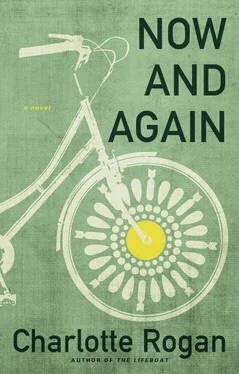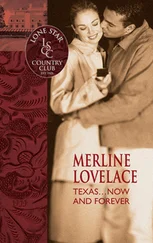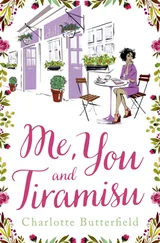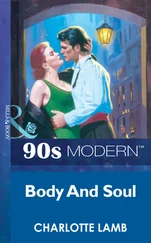“Am I under arrest?” asked Lyle.
Ben muttered something about stolen documents just as the larger officer came back from the kitchen and reprimanded Ben for chatting.
Lyle remembered something Maggie had said in relation to the prisoners, and it frightened him a little that he was considering using words that usually pertained to brawny felons. “You’re violating my constitutional rights,” he said.
Once the words were out of his mouth, the fear started to change into something else. He was almost shouting when he said, “Get out of my house, Ben. You and your friend need to get the hell out of my house.”
“Or what?” said the big man from the mouth of the hallway. “Or you’ll call the police?”
Ben said, “Come on, Reilly. We can get the warrant and come back later.”
“And let us know if you hear from your wife,” said Reilly. “You need to tell us right away. Obstructing an investigation is something we can arrest you for.”
“What investigation?” asked Lyle. “What investigation are you talking about?”
“You know we can’t tell you that,” said Ben as he hurried out the door.
Lyle rubbed his hand across his eyes as the sleek cruiser backed into the road and sped down the hill and around the curve toward town. Across the street, the hayfield was dotted with big round bales, left there after the summer cutting. If he didn’t hurry, he’d be late for work, but he stood a little longer contemplating the familiar scene, which had always seemed friendly to him but now seemed indifferent and bleak. Lyle wished he had a dog so the two of them could sit on the stoop together watching the cars go by, or he could pat its head and say, Now what the hey was that all about? and not be talking to himself. As he stood gazing into the distance, a car came into sight. Instead of passing, it turned in at the drive. Darned if it wasn’t Lily, stopping by on her way to work to find out what was going on.
“What do you think it was about?” she asked. “You don’t have some secret life I don’t know about, do you?” She gave him a smoky look before laughing at how unlikely that was.
“What if I do?” asked Lyle. “Am I as predictable as all that?” He was thinking of the time he had followed Lily home, but then he dropped the pretense and said, “It’s Maggie they’re after. I know you’ve heard the rumors…”
“People always gossip when someone doesn’t toe the line,” said Lily. “That’s something I know about firsthand.”
“Well, some of the rumors are true! She’s the one the Sentinel was referring to in that series on innocent prisoners! The reporter didn’t use her name, but everyone knows it was her.”
“Hmm,” said Lily. “Don’t tell me where she is, then. It’s better if I don’t know.”
“I don’t know where she is,” said Lyle, but he said it a little lamely.
“That’s good,” said Lily. “That’s exactly what you need to tell people. And next time you talk to her, tell her not to come home until you’re sure the coast is clear.”
It had been three weeks since the Glory Dayz celebration, three weeks since the official end of summer and the day Maggie had said, “I’m leaving tomorrow. I’m only taking the rainy-day savings. I’ll send money when I can.”
Lyle had been shocked by the announcement. But now he could see how everything that had come before had been leading up to it.
“It’s now or never,” Maggie had told him. “I started something, and I have to see it through.”
They had been standing in the kitchen discussing the baseball game: Will’s home run, a brilliant play at third, the heartbreaking loss — at least he had been discussing it — when Maggie pointed to a list of instructions she had taped to the refrigerator. Her eyes were bright in the darkness, reflecting the moonlight that came in at the window, but also, Lyle decided now, a burning inner conviction.
“Will told me you were serious, but I didn’t think you were,” Lyle had said. Now he wished he had asked more questions, but it hadn’t occurred to him, and he still wasn’t sure what those questions should have been.
Maggie had said, “Sleep well, honeybun. See you tomorrow.” But when he awoke the next morning, the bed beside him was empty and she was already gone.
9.4 Pastor Price
What would Maggie Rayburn do?”
Beads of sweat were dripping into Pastor Price’s eyes, but he was on fire with the Holy Spirit. The arc lights had been installed when the television show was only a faint glimmering in his consciousness, and now he congratulated himself on his foresight. Here he was, on the last Sunday after Pentecost, preaching the word to the faithful, seen and unseen, his message blasting out across the radio waves, across the visible spectrum, beaming down from satellites and blazing along broadband and fiber-optic cables — who knew how far the signal spread? He could feel the spirit lighting up within him. He felt it burning down from above until he wanted to cry out with the beauty and torment of it. Tears were streaming from his eyes as he spoke the words of the Old Testament: “Woe to the shepherds who destroy and scatter the sheep of my pasture!”
He was filled with pain and love as he preached, but also with a righteous anger when he thought of Fitch’s innocence series and how, instead of condemning Maggie for stealing prisoner records, some people were turning her into a hero. Didn’t she realize she could go to jail? And then the question burst out of him again: “What would Maggie Rayburn do?”
He let the words echo according to the calculations of the acoustic engineers who had mixed resonant surfaces with sound-absorbing wood. A chord from the magnificent organ quivered and died. Then silence and only the hushed rustle of clothing as a thousand parishioners caught their collective breath to hear the answer to the very question they had been asking each other and themselves.
“I’ve heard some of you say it. I’ve heard that question fall from the trembling lips of the elderly as I held their fragile hands. I’ve heard it from the rosebud lips of little children and from the lipsticked mouths of the mothers who only want the best for them. I’ve heard it from parents and teachers who have held Maggie up as an example of righteousness, an example of someone who put the needs of others before her own needs, someone who gave up everything to do what she thought was right.”
Now the pastor adopted a conversational tone. “It sounds good, doesn’t it? Self-sacrifice. Duty before pleasure, others before self. Following the still, small voice instead of the crass and shouting crowd.
“Don’t get me wrong — I believe in those things. But whose version of the story are we listening to?”
Now he let his tone become honeyed and intimate, as if he were gossiping to a circle of friends. “Haven’t you ever been in a situation where one friend tells you something her spouse or another friend did to her, and you come away hopping mad that such a kind and beautiful person could be treated so unfairly? You’re ready to shun the lout who did this to your friend. You’re ready never to talk to him or her again. And your righteous anger lasts…oh, maybe it lasts all the way until you hear the other person’s side of the story, at which time you are equally outraged and convinced.
“Well, whose story are you listening to now? To Maggie’s story or the Lord’s?”
The pastor waited — one beat, two beats, three.
“Those of you who aren’t from our community might well wonder who I’m talking about.” Here, Pastor Price gave a nod to each corner of the church, where the television cameras were barely visible poking out through the acoustic slats, and then to the adjustable boom that was being operated from a control room on the balcony. He raised his eyes to the heavens — there was a camera there too — and said, “But Maggie’s story isn’t so special. We all know people who are put on a pedestal, people who are revered because they were blessed with wealth or athletic ability or good looks or charisma. We all know people like that, people who are considered good and righteous only because of superficial things and without regard to the truth of their characters.
Читать дальше












